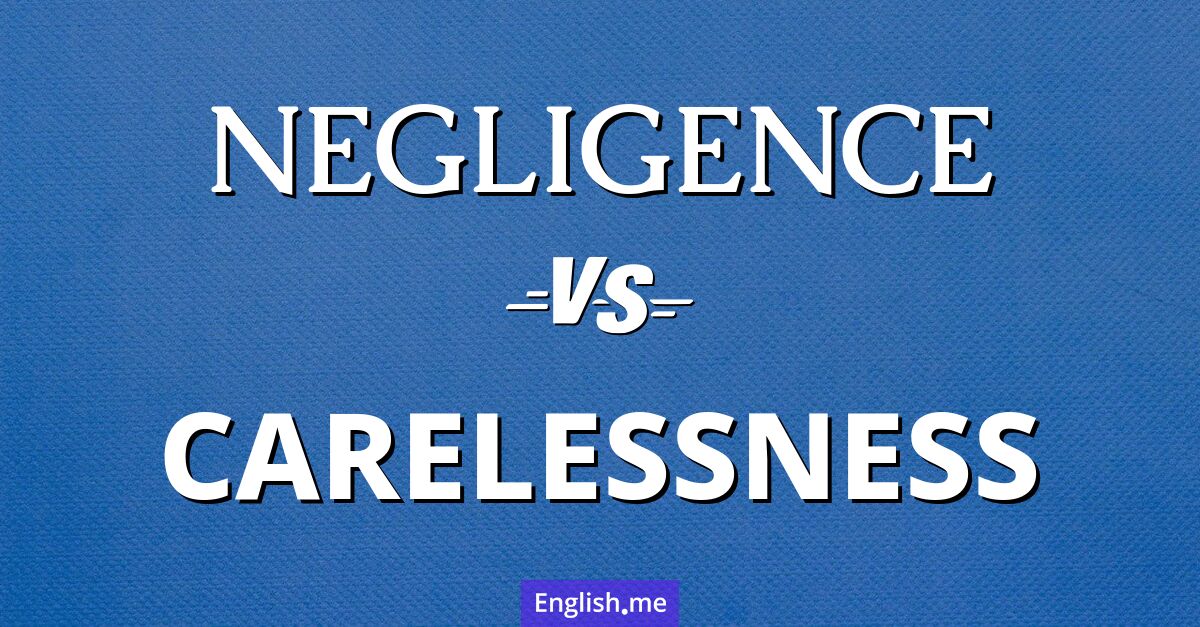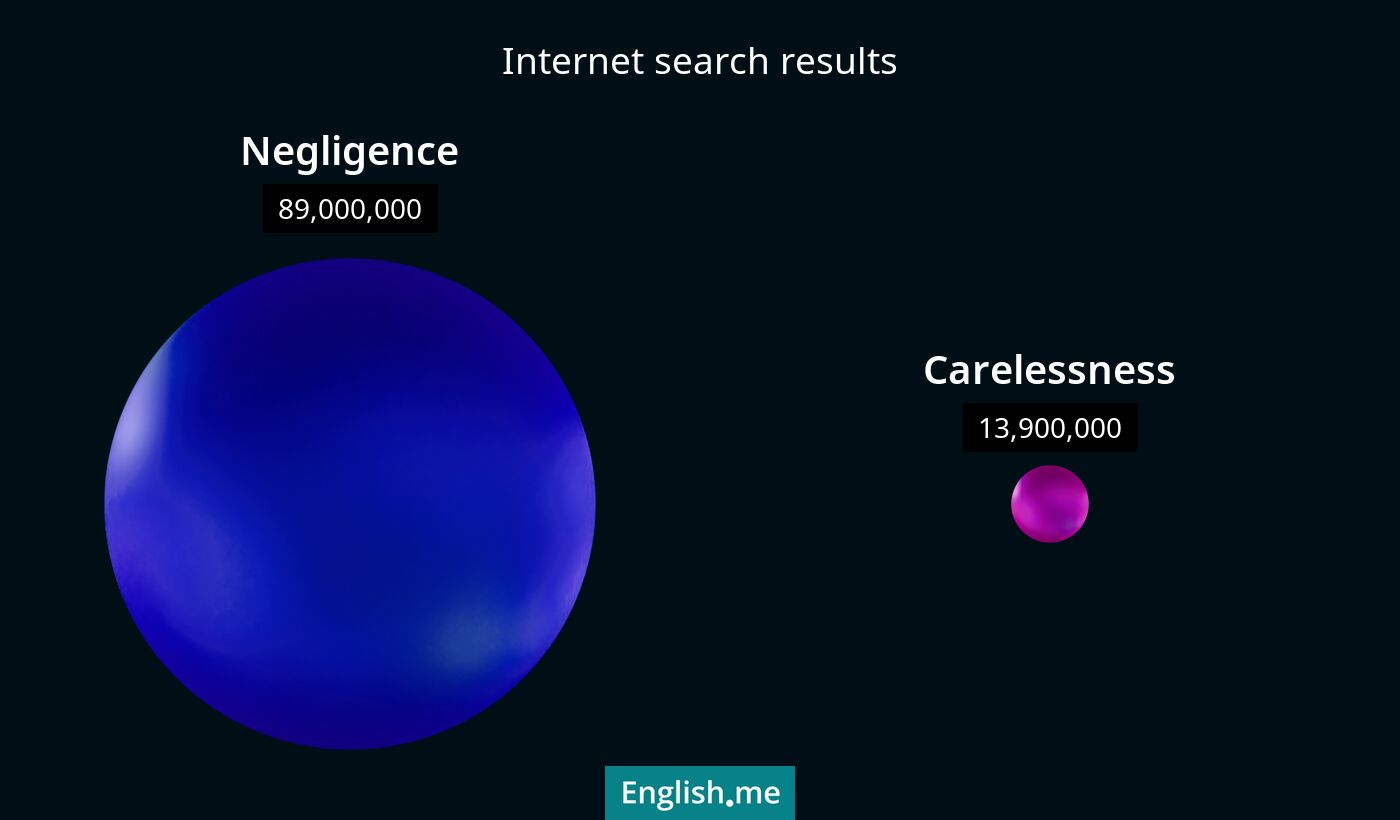"Negligence" vs. "carelessness": close, but not the same
Reviewed and edited by  Lloyd Cooper 12/06/2025, 12:16
Lloyd Cooper 12/06/2025, 12:16
English.me team member

 What is similar?
What is similar?
Both "negligence" and "carelessness" refer to a lack of proper attention or failure to take appropriate care, resulting in mistakes or accidents. They both describe behavior where someone does not fulfill a duty to be careful.
 What is different?
What is different?
"Negligence" is often used in formal, legal, or professional contexts to describe a failure to exercise the care that a reasonably prudent person would under similar circumstances, often resulting in harm or damage. "Carelessness" is a more general and informal term indicating not paying attention, without necessarily legal implications. Negligence implies a responsibility and consequences, while carelessness may simply refer to being sloppy or inattentive.
 Which one is more common?
Which one is more common?

 Examples of usage
Examples of usage
Negligence- The doctor was sued for medical negligence after failing to diagnose the illness.
- The company’s negligence led to a serious safety violation.
- Due to his negligence, the house caught fire.
- His carelessness caused him to spill coffee on his laptop.
- She failed the test because of carelessness during the exam.
- Due to his carelessness, he forgot to lock the door.

 English
English español
español française
française italiano
italiano deutsche
deutsche 日本語
日本語 polski
polski česky
česky svenska
svenska Türkçe
Türkçe Nederlands
Nederlands